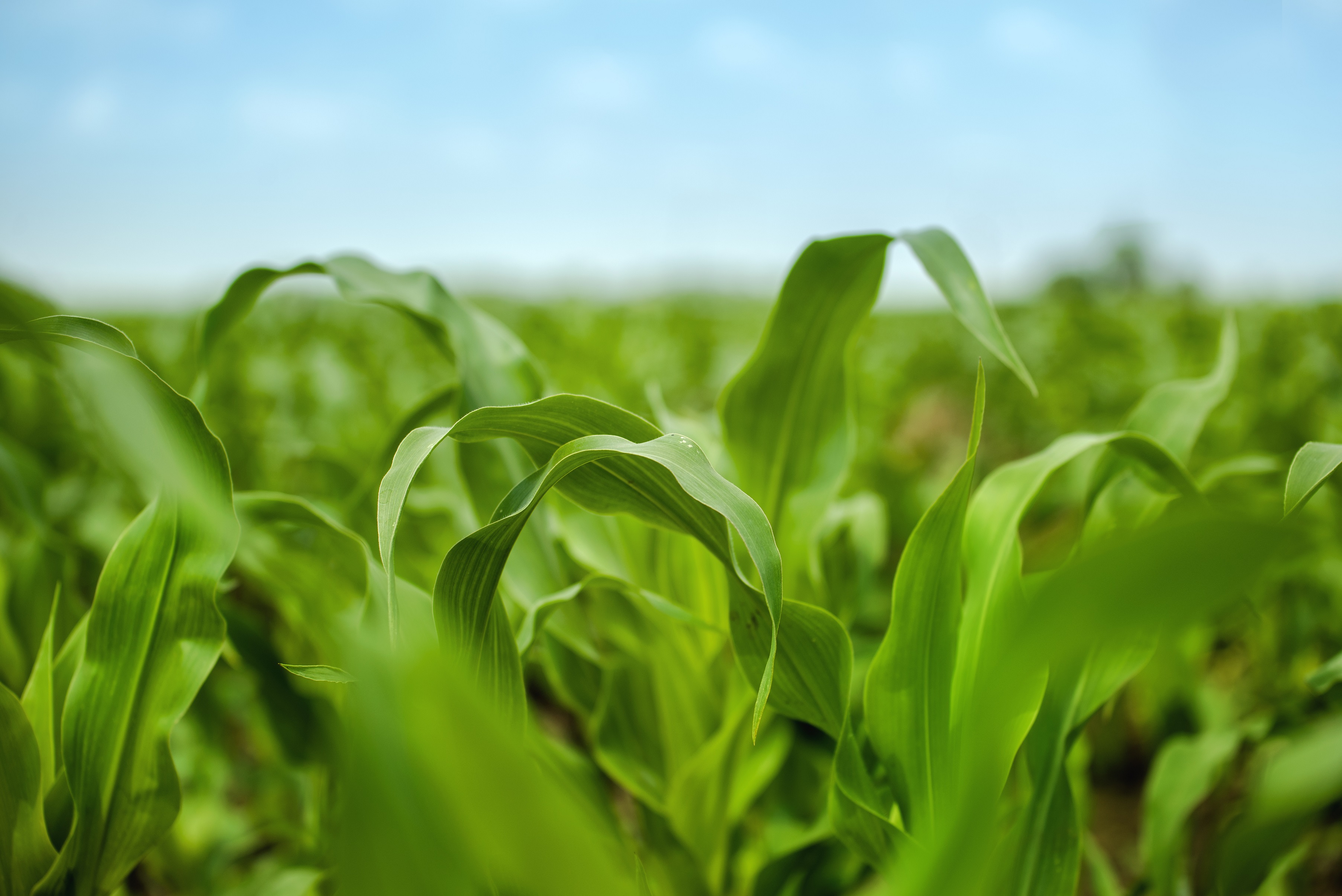
Transgenic Expression of Rubisco Factors Increases Maize's Photosynthesis and Chilling Tolerance
June 13, 2024| |
Maize is a widely grown crop worldwide and is essential to global food security. However, like other plants, its growth and productivity are limited by the slow activity of Rubisco, the enzyme responsible for carbon assimilation during photosynthesis. Scientists from the Boyce Thompson Institute (BTI) have demonstrated a promising approach to enhancing Rubisco production to improve photosynthesis and overall plant growth.
The BTI study involved the transgenic expression of three key proteins, Rubisco Accumulation Factor 2 (Raf2) and the large and small Rubisco subunits. The researchers overexpressed these proteins, which increased Rubisco content, accelerated carbon assimilation, and boosted plant height in maize. The BTI team found that while acting at different steps of the Rubisco assembly, Raf1 and Raf2 could independently enhance Rubisco abundance and plant performance. This opens possibilities for further improvements by stacking the traits together, potentially leading to even greater photosynthetic capacity.
The transgenic plants that the BTI team developed also showed improved resilience to chilling stress, a common environmental challenge that severely impacts crop yields. The researchers observed that these plants maintained higher photosynthetic rates during cold exposure and recovered more rapidly after the stress subsided. These findings hold exciting possibilities for other crops such as staple foods with similar photosynthetic pathways to maize, including sorghum, millet, and sugarcane.
For more details, read the news article on the BTI website.
| |
You might also like:
- Researchers Report Pivotal Enzyme for Photosynthesis and Yield Improvement in Cotton
- Scientists Resurrect Ancient Rubisco to Improve Photosynthesis
- Scientists Work to Improve Crops' Photosynthesis and Yields
Biotech Updates is a weekly newsletter of ISAAA, a not-for-profit organization. It is distributed for free to over 22,000 subscribers worldwide to inform them about the key developments in biosciences, especially in biotechnology. Your support will help us in our mission to feed the world with knowledge. You can help by donating as little as $10.
-
See more articles:
-
Plant
- Transgenic Expression of Rubisco Factors Increases Maize's Photosynthesis and Chilling Tolerance
- Researchers Reveal Gene That Boost Resistance of Crops Against Blast Disease
- University of Nebraska–Lincoln Team Develops Technique to Speed Up Corn Gene Identification
- Experts Tweak Sugarcane Leaf Angle for Biomass Boost
- ISAAA Inc. Holds a Public Briefing in Iloilo City for Filipino Farmers
-
Health
- Biomedical Engineers Use Silkworms to Enhance Organ-Like Tissues Grown in the Lab
- Enhanced Prime Editing System Creates Gene-Sized Edits in Human Cells
-
Read the latest: - Biotech Updates (January 14, 2026)
- Gene Editing Supplement (December 17, 2025)
- Gene Drive Supplement (February 22, 2023)
-
Subscribe to BU: - Share
- Tweet

